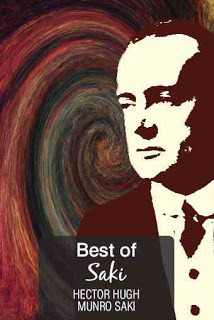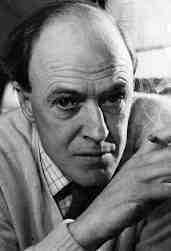Steven Mace's Blog, page 6
October 20, 2012
Priya Sharma- speculative fiction writer
I'd like to draw attention to the very impressive work of an author whose excellent writing I have recently come across. Priya Sharma is a speculative fiction writer, and she's already been recognised with many of her short stories published in esteemed genre publications such as Dark Tales, On Spec, Black Static, Alt Hist and Interzone magazines.
Check out her website here: Priya Sharma-Bio
You can read several of her amazing short stories online here: Priya Sharma- Read Online
Check out her website here: Priya Sharma-Bio
You can read several of her amazing short stories online here: Priya Sharma- Read Online
Published on October 20, 2012 10:31
September 24, 2012
My favourite short stories (1)
I thought that I would start a series of articles discussing my favourite short stories, as the technique of short fiction writing is something that I have been exploring for the past two or three years.
The first short story that I would like to draw attention to is "Sredni Vashtar" by the Edwardian British writer Saki -the pseudonym of Hector Hugh Munro (1870-1916)

"Sredni Vashtar" by Saki (H.H Munro)
This story is about a young boy, Conradin, who is the unhappy ward of his older female cousin, Mrs De Ropp. Conradin's immersion in a secret world, focusing on the pet animals of which he knows his guardian would disapprove, draws attention to the conflict between the almost pagan-like religion which Conradin invents and values for its sense of escapism, and the conservative values and conventional views of Mrs De Ropp.
I find this story wonderful to read for its psychological insight into the mind and imagination of a child, and particularly a child living in these difficult circumstances. The story is blackly comic, and rich with dark humour. Parallels can be drawn from the content of the story with Saki's own life, as he endured a strict upbringing as the ward of his aunts and grandmother when his mother died and his father was working in Burma.
It's also a fine example of the macabre in a domestic setting, with its sublime depiction of the suppressed fierce resentment of the child-protagonist and the triumphant nature of his spiteful revenge. The tone and themes of this story remind me of Roald Dahl's stories later in the 20th century (speaking of him, I'll talk about a favourite Dahl short story of mine next). All hail Sredni Vashtar, the Great Ferret:
Sredni Vashtar went forth,
His thoughts were red thoughts and his teeth were white.
His enemies called for peace, but he brought them death.
Sredni Vashtar the Beautiful.
You can read "Sredni Vashtar" for yourself, here:Sredni Vashtar by Saki

"Man From the South" by Roald Dahl
Another of my favourite short stories is "Man From the South" by Roald Dahl. Dahl is most famous for his children's books, but he was also an accomplished short story and novella writer for adults. Many of his short stories were used as the basis for the TV series Tales of the Unexpected. Dahl was a master of macabre tales and "Man From the South" falls into this category of his fiction. It's a twisted story about a sinister old man. He is a compulsive gambler who sets a particularly grisly high stake upon his bets...and to say any more would be to give the game away.
“Shall we not perhaps make a little bet on dat?” He smiled at the boy. “Shall we not make a little bet on whether your lighter lights?”
“Sure, I’ll bet,” the boy said. “Why not?”
“You like to bet?”
“Sure, I’ll always bet.”
The man paused and examined his cigar, and I must say I didn’t much like the way he was behaving. It seemed he was already trying to make something out of this, and to embarrass the boy, and at the same time I had the feeling he was relishing a private little secret all his own.
You can read "Man From the South" for yourself, here: Man from the South by Roald Dahl
Published on September 24, 2012 10:54
July 10, 2012
The Aspiring Author Online
Another reminder of my 'other' homes on the worldwide web, particularly as I don't always get a chance to update my blog as frequently as my other websites. If you're here and reading this, then obviously you already know about this one. Here, then, are the others which it'd be great if you could find time to look at:
http://www.facebook.com/pages/Steve-Mace/114497238566314
This is my Facebook page, please feel free to check it out and 'like' if you are a Facebook member! I try to update this regularly and post news and offers relating to my books.
http://www.amazon.co.uk/Steven-Mace/e/B005JJLWX6
Here is my Amazon Author Page, which offers Kindle versions of my books. These you can then download to your device. (for the United States version, just add .com into the URL instead of co.uk)
http://twitter.com/#!/MaceBookspace
I'm on Twitter, which I do update quite frequently as I also tend to post links to interesting articles, websites and opinion pieces which I always come across.
http://www.redbubble.com/people/stevemace
I'm also on the Redbubble website, which is an online community for artists primarily, but also for writers. I've posted a lot of material here, some of which duplicates what is here on this blog, but also there are more free stories, journal entries and casual photographs which I've taken over the past few years, and which I didn't want to display on Facebook any more- I'd encourage you to take a look at them here. Redbubble has a fantastic and active online arts community, and some marvellous work from around the world is showcased.
http://runawaywritings.wordpress.com/2012/02/16/steven-mace-bio/
I'm a regular contributor to the Runaway Writings website, run by Rob Richardson, and there are free stories published there, as well as work by other writers and artists in SF, Fantasy and Adventure genres.
Published on July 10, 2012 12:29
Ushna Sardar
Ushna Sardar is a poet, novelist and script writer from Karachi, Pakistan. Please check out Ushna's wonderfully illustrated poetry books, available at Lulu. They are hidden treasures: http://www.lulu.com/spotlight/ushna

Published on July 10, 2012 04:26
June 24, 2012
The Author's Craft: Plot Devices
There are numerous plot devices which authors of fiction employ which are known by specific terms, some more light-hearted than others. Here is a discussion of a small selection of these tropes: the Sampo, the Big Dumb Object, the MacGuffin, Alien Space Bats, Chekhov's Gun, the Red Herring, and Deus Ex Machina.
The first of these is the Sampo. The Sampo is a term derived from Finnish mythology, specifically the tale 'Sampo the Magic Mill'. To digress, the tale is about two brothers. Vainamoinen is a musician, and Ilmarinen is a blacksmith. They attempt to court the same woman, Aino- the daughter of the powerful and apparently fiendishly evil Queen Louhi of Pohjala. The two brothers are set magical tasks to win Aino's hand in marriage while the Queen attempts to thwart their plans (because she is evil, obviously).
Ilmarinen eventually wins Aino's hand in marriage by discovering the magical three words of a giant, a magical formula which allows him to create a Magic Mill. This Mill can make flour, salt and gold out of thin air, and is called the Sampo. Ilmarinen is allowed to marry Aino as the Sampo brings good fortune and prosperity to Queen Louhi and Pohjala (personally I would have ditched Aino and taken the Mill away in the first place, didn't they realise their mother in law was evil?). Sadly, shortly after marrying Ilmarinen, Aino sickens and dies (bad luck). The brothers decide to steal the Mill back from Queen Louhi and bring it to their own lands across the sea. Angered by the theft, Queen Louhi prays to the God Ukko, who listens to her and sends a storm which destroys the brothers' boat and sinks the Sampo to the bottom of the ocean. The brothers are saved (an outcome which they barely deserve after their sentimental stupidity) and the Sampo is stuck at the bottom of the ocean where it is jammed on producing the second product, salt. Hence the reason why to this day the seas and oceans are full of salt.
Essentially, the Sampo is an important artefact or object, usually magical but sometimes not, which is at the centre of a narrative and is the driving force for the actions of the principle characters. Another famous example of this is the 'One Ring' carried by Frodo Baggins in J.R.R Tolkien's Lord of the Rings.
Similarly, the more colloquial phrase Big Dumb Object is a term used primarily in regard to science fiction. It is used to describe an artefact or physical object similar to the Sampo which possesses extreme or unusual properties and/or powers, often physically imposing or grandiose in scope. An example of this from fiction/cinema would be the black monolith in 2001: A Space Odyssey which apparently triggers the process of evolution.
The MacGuffin (McGuffin, maguffin) can be an object, or a concept or goal which the protagonists of a plot pursue or ruminate upon. It differs from the Sampo and the BDO in terms of not always being a physical object, and often being a plot device which is mysterious, not fully explained or eventually superfluous to the story. It is used to drive plot and character action, and is not always the focal point of the narrative. The term originated in cinema.
Examples of it include the meaning of the word 'Rosebud' in Orson Welles' Citizen Kane and the Rambaldi device in the TV series Alias. In literature, one example of it is the 'Samizdat' entertainment cartridge in David Foster Wallace's novel Infinite Jest.
Alien space bats is another colloquial phrase specific to alternate history fiction. It refers to an event or detail in the plot which creates a point of divergence from real world history. Usually, the term is employed to describe something over-dramatic or implausible in that context. The term was coined by Alison Brooks, who was commenting upon the Nazi Operation Sea Lion plan- the plot to invade the British Isles during the Second World War. Brooks humorously remarked that “the only way it could be successful was if alien space bats helped the Nazis.”
Chekhov's Gun is a term derived from the Russian writer Anton Chekhov, linked to presentiment and foreshadowing. This is a narrative technique whereby authors introduce a seemingly irrelevant or superfluous detail, description or event early in the story. Initially that element appears unimportant, before assuming greater significance and importance later in the narrative. The example Chekhov used would be to describe the presence and location of a gun within a room early on in a story, which later on is used and fired by one of the protagonists.
It is a neat and sophisticated way to construct a narrative structure and introduce plot twists into the story, which then make plausible sense and fit together with the narrative beforehand. A good example of this technique would be the film Shutter Island directed by Martin Scorsese (based on the novel by Dennis Lehane).
The Red Herring is almost the opposite of Chekhov's Gun (C's G is essentially an apparent insignificant detail which later becomes significant), instead the Red Herring is a plot device which misleads and distracts the reader from the real truth of the plot. The emphasis than an author places on the Red Herring convinces (if done so successfully) that a particular character, event or element is significant when it is, in fact, not. It is often used in crime and mystery fiction to create intrigue and suspense. The term was invented in its present usage by the radical writer William Cobbett.
Deus Ex Machina translates from Latin as 'God from the Machine'. This is a narrative device used where a problem or situation which seemed unsolvable or unrecoverable is resolved by the contrived intervention of a new event, character, ability or object. It was used often in ancient Greek drama where a crisis was solved by the intervention of an all-powerful God. It is often criticised for being a clumsy method of solving plot holes or perilous situations, and carries the risk of challenging the reader's suspension of disbelief.
Here are plenty of examples of it occurring in fiction!
Published on June 24, 2012 07:09



